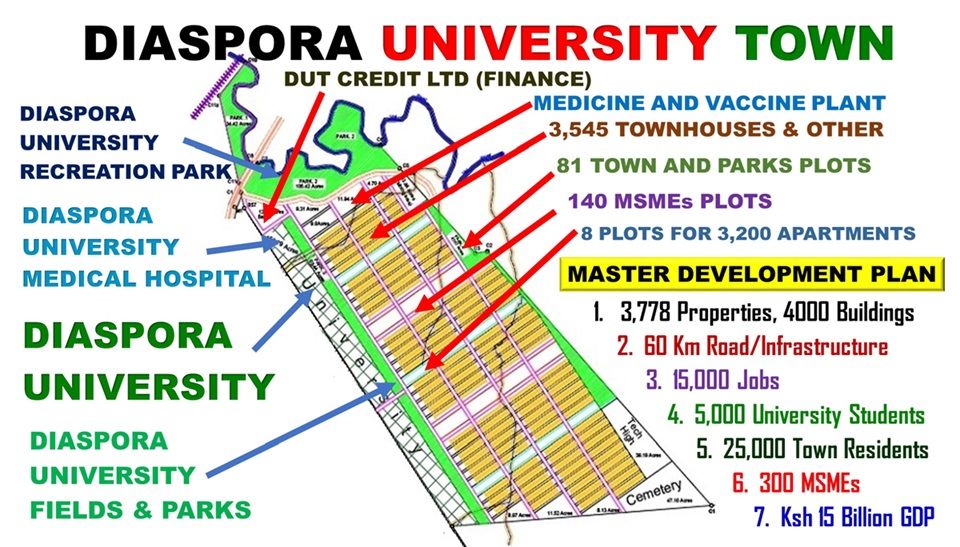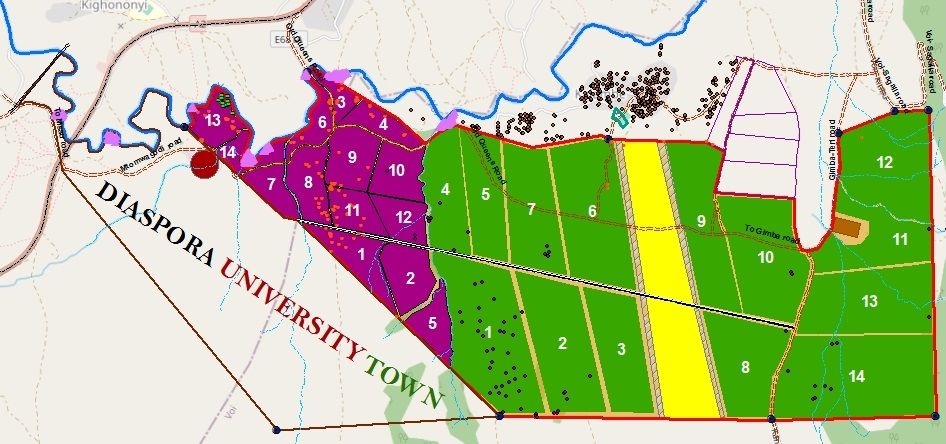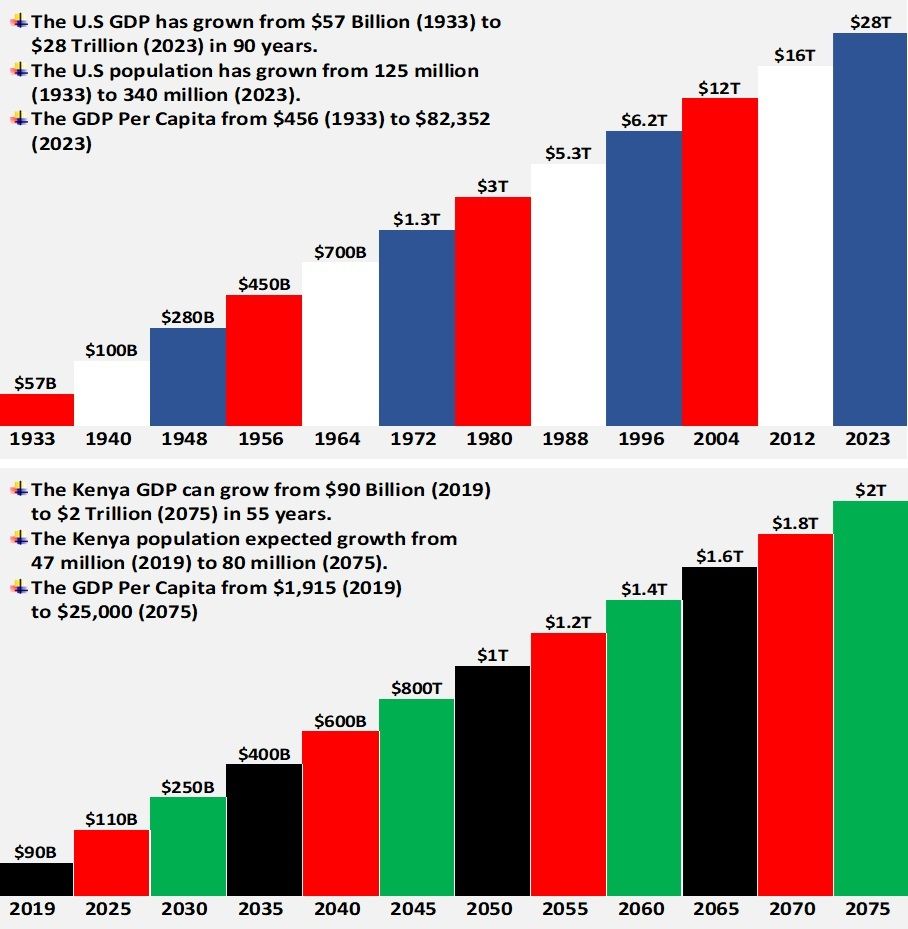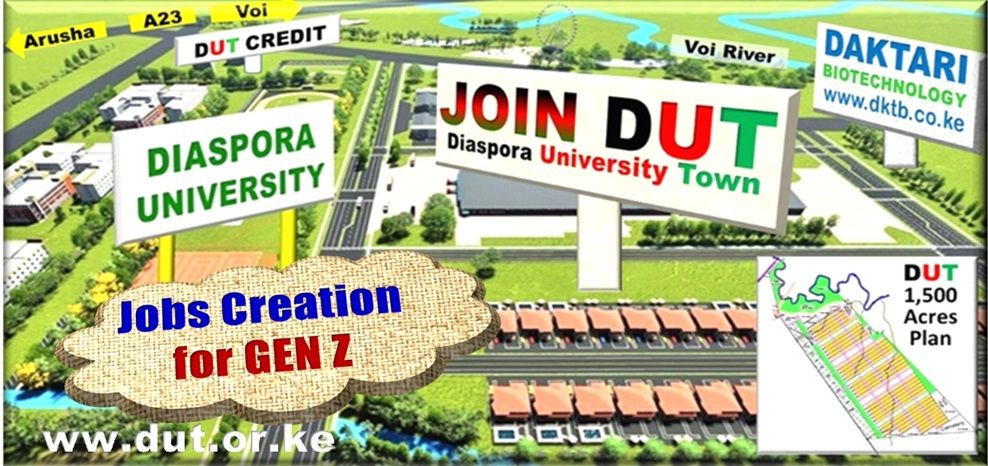The over 9 million Generation Z Kenyans born 1997 – 2012 want to live in a better country. Google maps today is showing Gen Z the towns and cities across the world. As Gen Z, join in developing Kenya they need to understand that without the right land policy and laws their rights will not be achieved. The Bible in Genesis 2:15 reads, “The Lord God took the man and put him in the Garden of Eden to work it and keep it.”
Kenya Constitution article 260 defines land as follows: “Land” includes— (a) the surface of the earth and the subsurface rock; (b) any body of water on or under the surface; (c) marine waters in the territorial sea and exclusive economic zone; (d) natural resources completely contained on or under the surface; and (e) the air space above the surface.

Kenya Constitution Chapter 5 of Land and Environment has 9 constitutional laws and articles on land as follows: 60. Principles of land policy. 61. Classification of land. 62. Public land. 63. Community land. 65. Landholding by non-citizens. 66. Regulation of land use and property. 67. National Land Commission and 68. Legislation on land.
60. Principles of land policy
The article opens with the words, “Land in Kenya shall be held, used and managed in a manner that is equitable, efficient, productive and sustainable.”
Since passing the Kenya Constitution 2010 the productivity and sustainable requirement of land has not been met. Land productivity is what makes the human resource productive.
For Gen Z to achieve jobs, their constitutional rights, their future children rights they have to discuss the constitutional laws of land and how to make land productive and sustainable.
61. Classification of land.
The classification of land Constitution law reads, “(1) All land in Kenya belongs to the people of Kenya collectively as a nation, as communities and as individuals. (2) Land in Kenya is classified as public, community or private.”
Section (1) of this law and constitution article makes all land in Kenya to belong to the people of Kenya. It also records that the people own land as communities and individuals.
Section (2) classifies the land as public, community and private. When one is stepping on any land of Kenya they are stepping on either a public, community or private land.
62 Public land.
Public land is land owned by Kenyans collectively. It was recorded in the constitution through 14 sub-sections that include: roads, rivers, lakes, land with public buildings and others.
The land is then held by the public through their county government or the national government.
When people say Government Land, they mean public land used by the government. There is no land classified as government land.
Public land usage and leasing is made possible through bills passed by the county government and the national government.
The National Land Commission (NLC) created by article 67 is given the responsibility to administer all public land. The responsibility to have a record of all public land that includes the usage and holder.
Kenyans further in section (4) of article made a law that reads, “Public land shall not be disposed of or otherwise used except in terms of an Act of Parliament specifying the nature and terms of that disposal or use.”
Any public land held under lease should be in compliance with the laws. The National Land Commission is given the mandate to ensure the laws are followed.
63. Community land.
As Kenya was formed by diverse communities, the communities recorded the land they held collectively as community land. They wrote, “Community land shall vest in and be held by communities identified on the basis of ethnicity, culture or similar community of interest.”
The words, “Similar community of interest,” were incorporated to accommodate the persons of different ethnicity and culture who join the community through marriage.
Section (2) of the Constitution defines what Community land consisted of during the enactment of Kenya Constitution 2010.
Section (3) appoints the county government to act as trustees on behalf of the communities that had not registered their land when Constitution 2010 was passed.
Section (4) law reads, “Community land shall not be disposed of or otherwise used except in terms of legislation specifying the nature and extent of the rights of members of each community individually and collectively,” this law requires the land disposal and usage meet members rights individually and collectively.
Disposal can be sale or sub-division to members to become private land. Parliament was required to enact legislation. The legislation was passed in 2016.

64. Private land.
The constitution reads, “Private land consists of — (a) registered land held by any person under any freehold tenure; (b) land held by any person under leasehold tenure; and (c) any other land declared private land under an Act of Parliament.
During Kenya Constitution 2010 enacted all land registered as freehold titles to individuals, companies, Trustees were classified in 64 section (a).
The private leasehold land, 64 section (b) is land leased from public, community or private leasehold land to an individual, company or government. The terms of the lease apply in the disposal and usage of the land.
65. Landholding by non-citizens.
Kenyans in this article made the law that reads, “A person who is not a citizen may hold land on the basis of leasehold tenure only, and any such lease, however granted, shall not exceed ninety-nine years.”
This law establishes that a person who is not a citizen can only hold land through leasehold. The law has provisions where the person is a company or a Trust.
66. Regulation of land use and property.
In this article the Kenyans agreed as follows, “(1) The State may regulate the use of any land, or any interest in or right over any land, in the interest of defence, public safety, public order, public morality, public health, or land use planning. (2) Parliament shall enact legislation ensuring that investments in property benefit local communities and their economies.”
The legislation of the regulation of land use and property was supposed to be enacted in five years from the passing of Kenya Constitution 2010.
67. National Land Commission.
In this article Kenyans created the National Land Commission and gave the commission gave the following mandates: (a) manage public land on behalf of the national and county governments; (b)recommend a national land policy to the national government; (c) advise the national government on a comprehensive programme for the registration of title in land throughout Kenya; (d) to conduct research related to land and the use of natural resources, and make recommendations to appropriate authorities; (e) to initiate investigations, on its own initiative or on a complaint, into present or historical land injustices, and recommend appropriate redress; (f) to encourage the application of traditional dispute resolution mechanisms in land conflicts; (g) to assess tax on land and premiums on immovable property in any area designated by law; and (h) to monitor and have oversight responsibilities over land use planning throughout the country. And also to perform any other functions prescribed by national legislation.
The National Land Commission was put into place and funded by taxpayers. The questions are: Is the Commission delivering its constitution mandates? How much land of the approximately 145 million acres of land called Kenya land is applied productively and sustainably? As administrator of public land, does the Commission have a record of all public lands?
68. Legislation on land.
The last article that Kenyans put to place on land was a requirement of legislation as follows: “Parliament shall— (a) revise, consolidate and rationalise existing land laws; (b) revise sectoral land use laws in accordance with the principles set out in Article 60 (1); and (c) enact legislation— (i) to prescribe minimum and maximum land holding acreages in respect of private land; (ii) to regulate the manner in which any land may be converted from one category to another; (iii) to regulate the recognition and protection of matrimonial property and in particular the matrimonial home during and on the termination of marriage; (iv) to protect, conserve and provide access to all public land; (v) to enable the review of all grants or dispositions of public land to establish their propriety or legality; (vi) to protect the dependents of deceased persons holding interests in any land, including the interests of spouses in actual occupation of land; and (vii) to provide for any other matter necessary to give effect to the provisions of this Chapter.”
Kenyans required the first bill be passed in 18 months following the constitution enactment. As population grows this bill should be considered every 5 years and the parties fielding candidates should state how the bill will be amended or replaced with a new bill so Kenya land plays its role in producing the needs of Kenya and sustaining them.
JOBS CREATION FOR GEN Z
For Gen Z to get their constitutional rights of food, housing, healthcare, education, environment, children rights and other rights, as they live in Kenya some to the year 2100 and beyond, they need to work on land bills and amendments of land bills that will ensure their rights are met.

The sovereign power that belongs to the people of Kenya as recorded in article one consists of their land resource, human resource and money resource. Gen Z has to ensure that the three resources are applied productively so as to meet their constitutional needs. The resources once productive will grow Kenya GDP. The U.S GDP grew from $57 billion 1933 to $28 Trillion (2024) for the three resources were productive. The 9 million Gen Z's need to grow Kenya GDP from current $110 to past $2 trillion by 2075 through making land, human and money resources productive.
(Dan Kamau is Diaspora University Town (DUT) Project Director. The project plan will make over 5,000 acres of land productive and sustainable to meet the rights of Kenyans. A GDP of over Ksh 20 billion will be established at DUT.)






